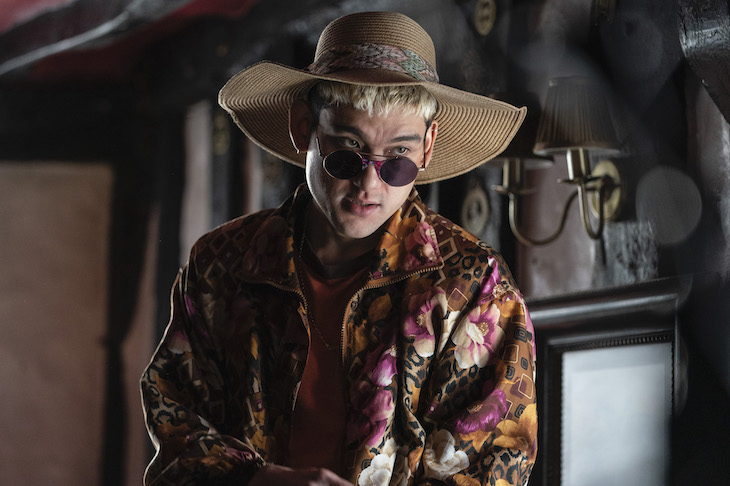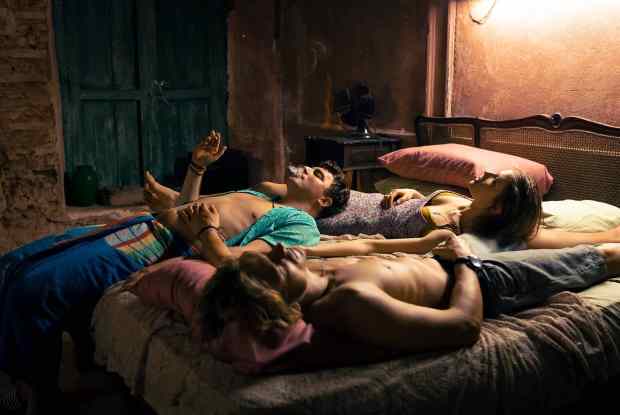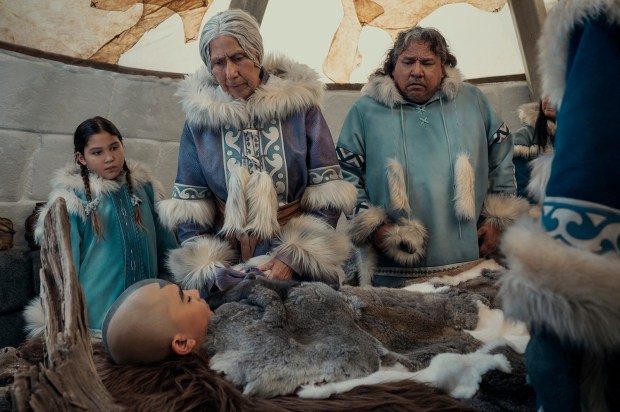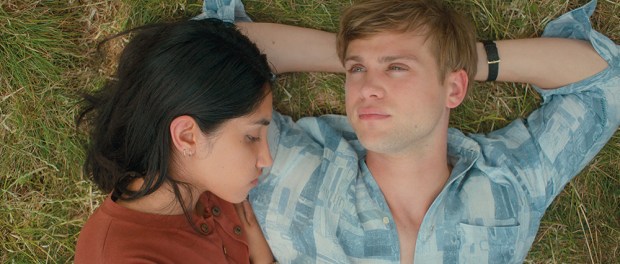The key to surviving the next couple of weeks of TV is to avoid like the plague anything that smacks of seasonal viewing. So, no Christmas specials (such as the semi-celebrity, elderly grown-ups version of University Challenge where the questions are even more laboriously PC than on the student edition), no Harry Potter, no adverts featuring tinsel, dragons and patronisingly diverse families making merry. Basically, you want to steer clear of terrestrial TV altogether — but with one exception. You may use BBC iPlayer to download the only decent drama series that slipped through the net: Giri/Haji.
Joe Barton’s blackly comic Anglo-Japanese thriller was by some margin the most original and inspired thing on the BBC all year. But it was a bit unlucky with the reviews. Lots of critics clocked from the first episode — which began with a Tarantinoesque Yakuza massacre in Tokyo — that it was exotic, gory, different, and not a little bonkers. But perhaps they found it too hard to categorise to give it the rave notices it deserved.
Giri/Haji is by turns cartoonishly violent, melancholy, funny, romantic, moving, poetic, charming and beautiful. There’s a scene at the end, for example — don’t worry, I’m not spoiling anything — where the characters suddenly break off, mid-violent action, into a lovely, meditative, exquisitely choreographed slow-motion expressive dance. It could have been awful, for such experiments always carry a risk, but instead it was a wonderful, memorable moment redolent of that golden age when writers such as Dennis Potter weren’t afraid to push artistic boundaries.
It’s Barton’s first original authored series, based on a story his girlfriend had told him about her crime-science course. One of the students was a middle-aged detective who’d been sent over from Tokyo. ‘I tried to imagine what must be going through his head being stuck in a room full of British people in their mid-twenties,’ he explained to the BBC. ‘What did he think of everyone? Where was he staying?…Was his brother who he previously thought dead actually alive and caught up in the suspected murder of a Yakuza boss’s nephew that had subsequently caused a gang war that was threatening to tear Tokyo apart? That last one was particularly helpful to be honest.’
There’s a depressing uniformity and predictability about BBC drama now, partly the result — ironically — of its compulsory diversity policy. Tick-box casting, even when anachronistic or otherwise insultingly inappropriate; reverse stereotyping where women are stronger than men.
Yet miraculously Giri/Haji has found a way through the BBC’s maze of creative death. Yes, you could be irked by the fact that so many of the characters under 25 seem to be in same-sex relationships rather than heterosexual ones (is it all over, then? Will Generation X be the last one to breed, now that all the new kids are ambi-sexual?). But actually this gives us the most entertaining character, Rodney — the motormouth Eurasian rent boy superbly played by Will Sharpe (the extraordinarily versatile Cambridge graduate clearly destined to become the actor of his generation).
Had the entire eight episodes been just about Rodney, this shambolic, worldly-wise, bitchy tart-with-a-heart and his druggy excess and sexual failure, I would have been more than delighted because every time he appears the screen lights up and dialogue fizzes with debauched verve. But there are plenty of other characters very nearly as vivid and mesmerising: the Japanese cop/gangster brothers (played by Takehiro Hira and Yosuke Kubozuka), the cute daughter (Aoi Okuyama), the psychopathic but cheeky-chappy London gangster Abbott (Charlie Creed-Miles), and Kelly Macdonald as the ‘will they/won’t they ever get it together’ policewoman love interest.
Even minor characters you barely thought to notice suddenly develop inner lives and begin carrying plotlines. It makes for hugely satisfying viewing because there are so many different characters you’re invested in, all perfectly played by actors clearly having the time of their lives.
If Giri/Haji (a Netflix co-production, so happily it will reach a global audience) doesn’t get every award going, then there’s no justice. And if it does, then I hope the BBC takes the hint: unless it’s brave enough to give writers their head, to take risks and embrace real diversity, then a lot of us are just going to abandon it and go elsewhere.
Oh, and if you need a few more tips, here are some of my must-sees from the past year or so: Succession; Chernobyl; Babylon Berlin; Gomorrah (Sky Atlantic); Suburra (season one is better than season two); Fauda (both seasons available on Netflix). That should see you through to the New Year: not a turkey among them.
Got something to add? Join the discussion and comment below.
Get 10 issues for just $10
Subscribe to The Spectator Australia today for the next 10 magazine issues, plus full online access, for just $10.
You might disagree with half of it, but you’ll enjoy reading all of it. Try your first month for free, then just $2 a week for the remainder of your first year.















Comments
Don't miss out
Join the conversation with other Spectator Australia readers. Subscribe to leave a comment.
SUBSCRIBEAlready a subscriber? Log in